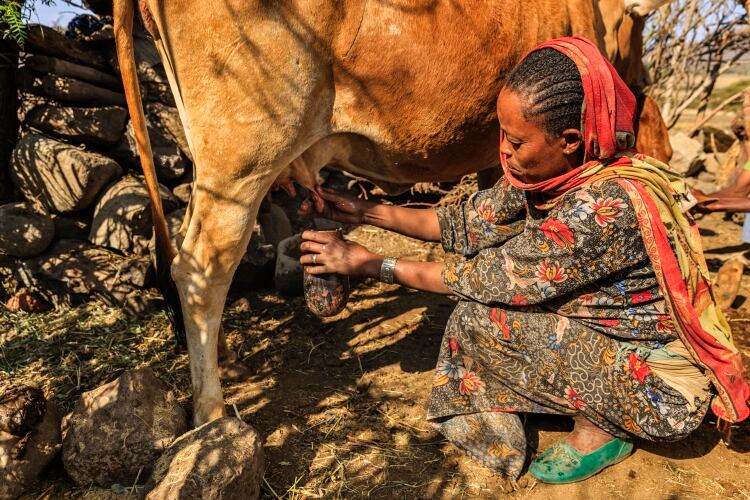The Dutch company said its commitments cover three areas where it believes it can make the greatest positive impact together with its business partners: Health for People, Health for Planet and Healthy Livelihoods.
Through investment in its bioscience-based innovations, extensive partnerships, and advocacy activities, DSM said it aims to help deliver change to ensure accessible, affordable, healthy nutrition and healthy livelihoods within planetary boundaries.
Under the ‘people’ umbrella, DSM said its new strategic food system commitments by 2030 are to work toward closing the micronutrient gap of 800m vulnerable people through fortified staple foods and health supplements that deliver a proven and cost-effective method of combating malnutrition; as well as empowering consumers to achieve healthier diets.
It also plans to support the immunity of 500m people. The company said it will step up its role in delivering essential vitamins, minerals and other ingredients to consumers worldwide through high-performance dietary supplements. DSM said it will promote healthier diets and also develop and launch new innovative solutions like ampli-D, which helps boost vitamin D levels in the body in weeks - instead of months.
In the ‘planet’ category, DSM said it hopes to enable double-digit on-farm livestock emission reductions. This includes enabling a 20% reduction in greenhouse gas (GHG) emissions in dairy production, a 30% reduction in ammonia emissions from swine farming, and a 30% reduction in phosphorus emissions from poultry farming.
The company said a part of this solution includes its feed additive Bovaer, a quarter teaspoon of which reduces enteric methane emission by approximately 30% - enabling a 10-12% reduction in GHG emissions per kilo of milk.
DSM said it is also committing to reach 150m people with nutritious, sustainable plant-based protein foods by 2030, more than doubling the number of lives DSM reaches with its plant-based solutions today.
DSM said it will continuously innovate and accelerate its solutions for sustainably-produced plant-based foods and beverages that provide a nutritious alternative to meat, fish or dairy. Examples include solutions for a better taste, texture and mouthfeel in plant-based drinks; as well as its investment to scale up canola-based protein used to enhance a range of vegan and vegetarian products – from meat and dairy alternatives to popular beverages.
Under the Healthy Livelihoods banner, together with its partners, DSM said it is committed to supporting the livelihoods of 500,000 smallholder farmers across value chains by 2030.
As a first step, DSM said it is helping improve the incomes of farmers working in its own value chains and through joint venture partners. To achieve this, DSM will be scaling up its innovative social enterprise model Africa Improved Foods (AIF). This Rwanda-based public-private partnership produces nutritious and affordable fortified foods for - and with - local communities.
It sources a variety of grains from around 130,000 smallholder farms, providing a steady and more secure income, as well as training to improve yields and climate-resilient farming. By expanding the program to additional locations in Sub-Saharan Africa, DSM wants to quadruple the number of farmers reached and thus contribute to equality, local economic development and job creation.
The commitments support UN Sustainable Development Goals 2, 3, 12 and 13. DSM said it is committed to continue to obtain reasonable assurance on its impact reporting including these new commitments as it plans to report its progress every year in its Integrated Annual Report.
Geraldine Matchett and Dimitri de Vreeze, co-CEOs, said, “The way we produce and consume food as a society contributes to major global challenges, such as climate change, malnutrition and poverty. To solve this we need to collectively rethink our food systems from farm to fork. As a purpose-led global science-based leader in health, nutrition and biosciences, we’ve been playing our part and applied our resources and expertise to create positive change for instance through our food fortification and feed solutions for on-farm emission reduction.
“With today’s ambitious commitments we are taking a next step by making our societal impact explicit and measurable. We look forward to stepping this up, together with our public and private sector partners, to ensure accessible, affordable, healthy nutrition and healthy livelihoods within our planet’s boundaries.”




